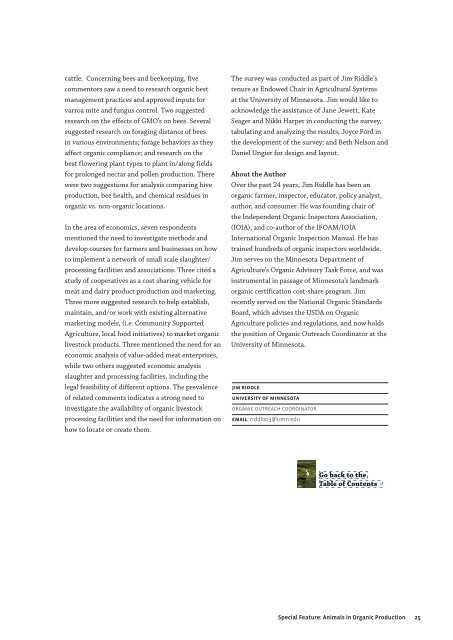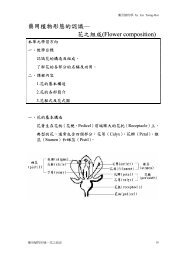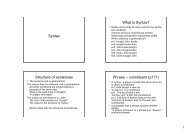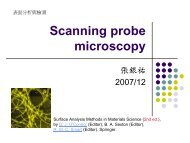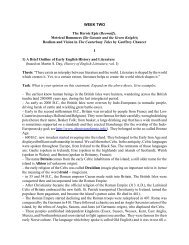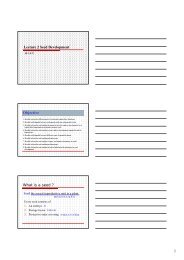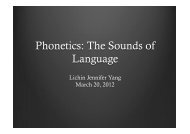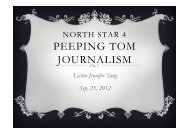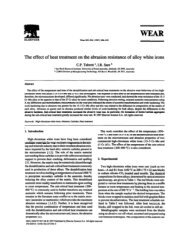Ecology and Farming
Ecology and Farming
Ecology and Farming
Create successful ePaper yourself
Turn your PDF publications into a flip-book with our unique Google optimized e-Paper software.
cattle. Concerning bees <strong>and</strong> beekeeping, five<br />
commentors saw a need to research organic best<br />
management practices <strong>and</strong> approved inputs for<br />
varroa mite <strong>and</strong> fungus control. Two suggested<br />
research on the effects of GMO’s on bees. Several<br />
suggested research on foraging distance of bees<br />
in various environments; forage behaviors as they<br />
affect organic compliance; <strong>and</strong> research on the<br />
best flowering plant types to plant in/along fields<br />
for prolonged nectar <strong>and</strong> pollen production. There<br />
were two suggestions for analysis comparing hive<br />
production, bee health, <strong>and</strong> chemical residues in<br />
organic vs. non-organic locations.<br />
In the area of economics, seven respondents<br />
mentioned the need to investigate methods <strong>and</strong><br />
develop courses for farmers <strong>and</strong> businesses on how<br />
to implement a network of small scale slaughter/<br />
processing facilities <strong>and</strong> associations. Three cited a<br />
study of cooperatives as a cost sharing vehicle for<br />
meat <strong>and</strong> dairy product production <strong>and</strong> marketing.<br />
Three more suggested research to help establish,<br />
maintain, <strong>and</strong>/or work with existing alternative<br />
marketing models, (i.e. Community Supported<br />
Agriculture, local food initiatives) to market organic<br />
livestock products. Three mentioned the need for an<br />
economic analysis of value-added meat enterprises,<br />
while two others suggested economic analysis<br />
slaughter <strong>and</strong> processing facilities, including the<br />
legal feasibility of different options. The prevalence<br />
of related comments indicates a strong need to<br />
investigate the availability of organic livestock<br />
processing facilities <strong>and</strong> the need for information on<br />
how to locate or create them.<br />
The survey was conducted as part of Jim Riddle’s<br />
tenure as Endowed Chair in Agricultural Systems<br />
at the University of Minnesota. Jim would like to<br />
acknowledge the assistance of Jane Jewett, Kate<br />
Seager <strong>and</strong> Nikki Harper in conducting the survey,<br />
tabulating <strong>and</strong> analyzing the results; Joyce Ford in<br />
the development of the survey; <strong>and</strong> Beth Nelson <strong>and</strong><br />
Daniel Ungier for design <strong>and</strong> layout.<br />
About the Author<br />
Over the past 24 years, Jim Riddle has been an<br />
organic farmer, inspector, educator, policy analyst,<br />
author, <strong>and</strong> consumer. He was founding chair of<br />
the Independent Organic Inspectors Association,<br />
(IOIA), <strong>and</strong> co-author of the IFOAM/IOIA<br />
International Organic Inspection Manual. He has<br />
trained hundreds of organic inspectors worldwide.<br />
Jim serves on the Minnesota Department of<br />
Agriculture’s Organic Advisory Task Force, <strong>and</strong> was<br />
instrumental in passage of Minnesota’s l<strong>and</strong>mark<br />
organic certification cost-share program. Jim<br />
recently served on the National Organic St<strong>and</strong>ards<br />
Board, which advises the USDA on Organic<br />
Agriculture policies <strong>and</strong> regulations, <strong>and</strong> now holds<br />
the position of Organic Outreach Coordinator at the<br />
University of Minnesota.<br />
Jim riddle<br />
univerSity OF minneSOta<br />
organic outrEach coorDinator<br />
email: riddl003@umn.edu<br />
Go back to the<br />
Table of Contents ><br />
Special Feature: Animals in Organic Production<br />
2


